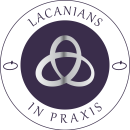Contact Details:
Telephone: 02077994803
Mobile: 07708 791880
Email: This email address is being protected from spambots. You need JavaScript enabled to view it.
Practice Rooms:
London, Bloomsbury
Nearest Stations:
Underground: Tottenham Court Road, Goodge Street, Holborn, Russell Square
Fees:
£70, concessions by agreement
Training / Qualifications:
Psychoanalyst, Lacanian orientation
New Lacanian School of Psychoanalysis
World Association of Psychoanalysis (WAP)
MA Psychoanalysis, BA English,
Memberships:
World Association of Psychoanalysis
New Lacanian School of Psychoanalysis
Interests and Research:
My work has introduced me to many people with diverse presenting conditions and questions.
The speech of each analysand turns on their singularity as a living being, whose signature thread is their orientation of desire. Where there is suffering, in Lacan's terms, the subject's desire is alienated in the desire of the Other, which may play out in terms of confusions or a sense of disconnection with the sense of their own life and being. Desire is hidden in plain sight. Perception presents many clues pulsating in the language, resonating in the events and objects of experience (eg, symptoms, inhibitions, compulsions, heartbreaks, seeming failings, apparent confusions, and distressing misunderstandings) of which the speaking being speaks.
As the exploration of the analytic work unfolds, moments of hearing what they are saying, and awareness of something not realised before, allow for reseeing, with effects that are subtle and profound. The timing, context and dimensions of perceptual shifts do not conform to pre-diction. As successive realisations bring awareness into resonance with their zone of originality, doors begin to open moment by moment, and discernment for navigating life in tangible ways emerges. From a sense of compulsion that I must what I do not want, to desire to which I discover and am inspired, to embodiment where I act.
One dimension of experience is in how the fields of education and work are affected by the suffering of disorientation vis as vis desire. Examples of this may be noted in
Diagnostic terms, such as Dyslexia, Dyspraxia, Dyscalculia, ADD, ADHD, and many more describe symptoms in acknowledging that perplexing causes underlie unrealised potentials; overworking, anxiety/fatigue – eg ‘burnout’; difficulties with coordination – physical/conceptual; a strained relation to time – crushing rushing, procrastination, repeated dis-appointment.
Freud’s aim for psychoanalysis turned on becoming able 'to love and to work'.
To this end, Freud initiated his primary rule for psychoanalysis, free association in the service of Truth. This principle permits the analysand to use their powers of language to explore, discover and reveal what may otherwise be lost in the convolutions of chatter. Valuing the details and taking the time to pay close attention to language-based thought and speech gives psychoanalysis its framework of operations.
The psychoanalytic work requires the analysand to mobilise and develop their faculties of speech and language. For the best to obtain, it is also important, following Freud's 'evenly suspended attention', for the analysand to spend a daily period of time defocusing from language-based thinking, eg, in some form of meditative practice. This allows what is false in language to lose momentum, and the clarity of subtle truths to find their way to awareness all the more distinctly.
English, Greek.

